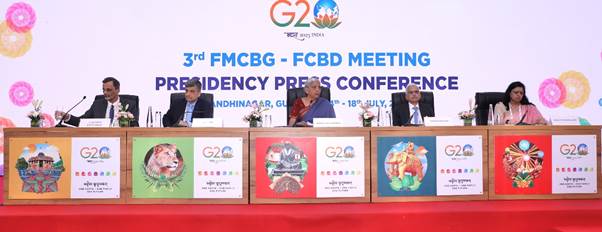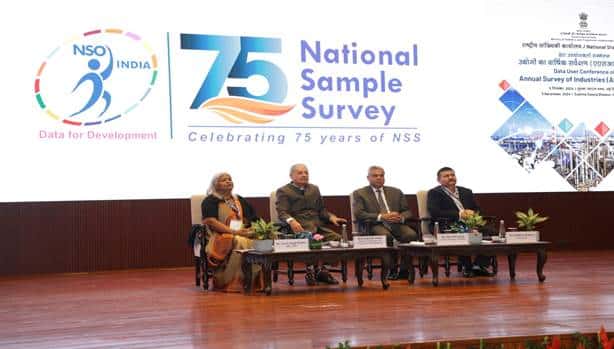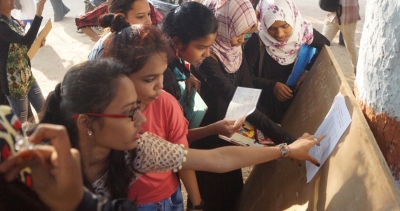G20 finance deputies meet in Delhi to discuss global economic outlook and risks

G20 finance deputies meeting began in New Delhi on September 5, ahead of the main summit. Members are discussing views on financing for Sustainable Development Goals (SDGs), including climate action to facilitate the development of a sustainable and resilient global economy.
G20 finance deputies meeting began in New Delhi on September 5, ahead of the main summit. Members are discussing views on financing for Sustainable Development Goals (SDGs), including climate action to facilitate the development of a sustainable and resilient global economy.
Finance deputies from member states including the USA, Britain, UAE and Council of EU and Spain are present at the meeting.
Delegates are focusing on financial sector developments and approaches to advancing financial inclusion through a people-centric vision. Delegates are set to exchange views on priorities for appropriate financial regulations and ensuring financial stability through a common approach.
Leaders from the G20 major economies will start a summit in New Delhi on September 9 to try to find solutions to some of the world’s pressing problems amid a deep geopolitical divide over the war in Ukraine that threatens any progress.
Earlier, Third G20 Finance Ministers and Central Bank Governors (FMCBG) meeting was held in July in Gandhinagar, Gujarat.
Members discussed the global economic outlook and risks, including macroeconomic implications of food and energy insecurity as well as climate change.
Participants pledged to prioritise the well-being of the people and the planet and reaffirmed their commitment to enhancing international economic cooperation, strengthening global development for all and steering the global economy towards strong, sustainable, balanced, and inclusive growth.
G20 Members have actively deliberated on how to strengthen multilateral coordination to effectively address the deteriorating debt situation and facilitate coordinated debt treatment for debt-distressed countries. They also emphasised the importance of addressing debt vulnerabilities in low and middle-income countries in an effective, comprehensive and systematic manner.









